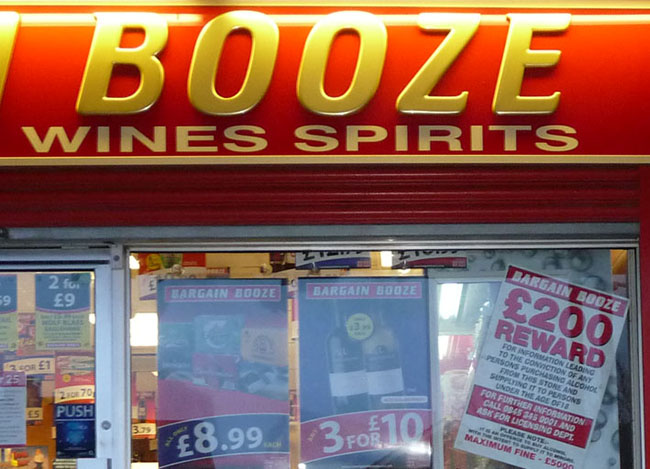 WORRIED about alcohol consumption and the rise of binge drinking during the pandemic? Psycotherapist NOEL McDERMOTT provides some simple measures to follow for those concerned about themselves or loved ones.
WORRIED about alcohol consumption and the rise of binge drinking during the pandemic? Psycotherapist NOEL McDERMOTT provides some simple measures to follow for those concerned about themselves or loved ones.
All the data we are seeing indicates significant changes in alcohol consumption during the lockdown and as we come out of it. With the closure of bars and clubs it wasn’t surprising that in March we saw alcohol sales in the retail sector and off licences increase by 67%, which is in comparison to general supermarket food sales which increased by only 43%.
We have also seen consistent trends reporting of those that drank infrequently and moderately before the pandemic reducing their consumption significantly and those that drank regularly, increasing their consumption.
In the US similar results are being observed with alcohol consumption in the Bay Area of California being recorded at an increase of 42%.
Across Europe and in the UK, people have been replacing bars with online drinking parties and promoting online happy hours. The numbers of problematic drinkers are growing worldwide, and we will see problems with alcohol abuse increase. Figures from Refuge charity revealed that domestic violence have increased very significantly and alcohol in indicated in upwards of 70% of domestic abuse cases.
Alcohol use & Coronavirus: Emerging bleary eyed and hung over?
Even short-term binge use of alcohol can have significant impacts on health and wellbeing and this is exactly the pattern we are seeing during the pandemic so far. A vicious circle builds up quickly with alcohol use for stress. Short term it can be managed but we are now neurologically out of the short term when the brain is adapting to these new alcohol consumption patterns meaning these new habits will be hard to break.
The Effects of Alcohol Abuse
It is not just a case of chronic alcohol use being the only problem as the levels of binge drinking, we are currently seeing is unsustainable. Those who are in the regular users’ category that have increased their consumption during the pandemic are reporting problems with sleeping, problems with mood regulation, concentration issues, productivity issues, relationship problems.
As we move out of the lockdown and the economy opens up, stress factors are increasing not decreasing with re-entry anxiety being widely reported. Increasingly breweries and pubs have adapted to the new situation and are providing home delivery and takeaway services. There is every indication that these services are being used at pre-lockdown levels and also no indication that retail sales have dropped off.
The overall picture is that the cohort of problematic drinkers is growing, and we will see the problems with alcohol abuse increase, these include a rise in:
- Relationship breakdowns
- Domestic abuse
- Health concerns
- Mental health issues
- Work problems
- Financial worries
Help for problematic drinkers at all time low
These problems are the types of issues we have seen emerging in countries that have come out of lockdown before us, such as China and Italy, and are part of the stresses of the pandemic itself irrespective of alcohol uses and abuse. Adding problematic alcohol use into this situation increases the severity of these issues. Prior to Covid, only one-in-five people with harmful drinking got the help they needed and at the moment as problematic drinking is increasing and services are more difficult to access this number has significantly lessened.
It’s essential that we are armed with information around alcohol use and abuse and take individual steps to ensure we are safe. Every time we have experienced challenges on a social level involving job insecurity, financial meltdown and during this current crisis the challenges to provide frontline services beyond the medical needs of the pandemic, alcohol abuse has risen significantly producing problems for a generation.
Ensure you don’t become a statistic by following these simple measures
- Don’t drink regularly – the healthiest pattern of drinking is random and irregularly
- Don’t drink to manage anxiety, stress, depression or because you can’t sleep – seek professional help if this is happening
- If you wait till you have a problem with drinking it’s too late – be proactive in your health with alcohol
- Take regular breaks from drinking – times when you don’t drink at all
- Don’t fall into the pressure of drinking to the same levels of other people during happy hours, for example – always drink to moderation when you do drink
- Use alcohol-free alternatives to drink socially with others – there are a great deal of low alcohol and zero alcohol beers, wines and increasingly spirits available
Ask for Help
If you are worried about your drinking or that of someone you love, don’t wait till you get help. Catching these sorts of problems in the early stage vastly increases positive outcomes. There are brief interventions for alcohol use problems that can very effectively stop the problem growing into something unmanageable.
Noel McDermott is a psychotherapist with over 25 years’ experience in health, social care, and education. He is the founder and CEO of three organisations, Psychotherapy and Consultancy Ltd, Sober Help Ltd and Mental Health Works Ltd. Noel’s company offer at-home mental health care and will source, identify and co-ordinate personalised care teams for the individual. They have recently launched a range of online therapy resources in order to help clients access help without leaving home – https://www.noelmcdermott.net/group-therapy/

